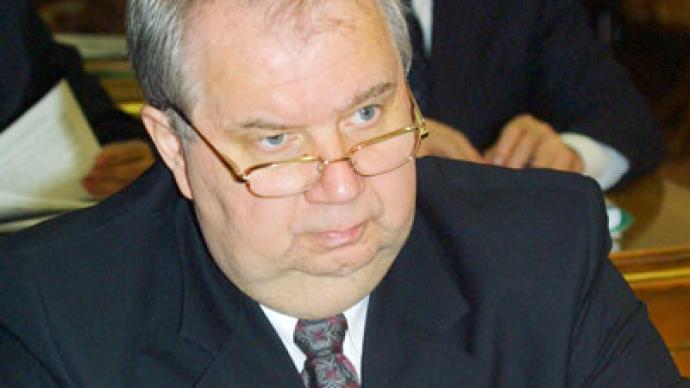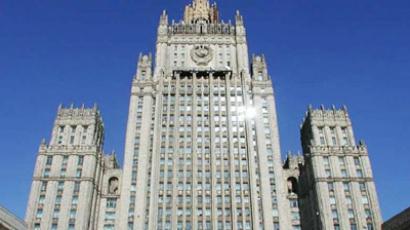Ambassador warns US Congress on Magnitsky bill

While highlighting progress in Russia-US relations, Russia’s ambassador to the United States warned that passage of the so-called Magnitsky bill could wreck everything.
US lawmakers are sending Russia some seriously mixed messages. On the one hand, they seem prepared finally to repeal the Cold War-era Jackson-Vanik amendment. At the same time, however, they look increasingly likely to slap the Magnitsky bill in its place. As Russian Ambassador to the US Sergey Kislyak warned in an op-ed piece, such a move would represent a major blow to bilateral relations.Kislyak criticized the Magnitsky bill as being based “on the distorted story of the death of a person in pretrial detention,” he wrote in The Hill, a daily congressional paper. The bill is named after Sergey Magnitsky, a 37-year-old lawyer for Hermitage Capital in Moscow and a prime suspect in a 2008 tax-evasion investigation. Officials say Magnitsky failed to receive proper medical treatment while in pre-trail detention and died as a result of complications from untreated pancreatitis and a heart condition. Members of Congress, at the risk of appearing to interfere in Russia’s internal affairs, want to punish Russian citizens who are “suspected of involvement” in the lawyer’s death.Deputy Foreign Minister Sergey Ryabkov said adoption of the bill could aggravate ties between Moscow and Washington, part of the so-called "reset" put forward by President Barack Obama."It appears American lawmakers want to break the positive trend in our relationship with such serious irritants," Ryabkov told Vesti-24 television.The ambassador noted that Russian lawmakers shared information about the case with US lawmakers, yet “few were interested, especially among the main proponents of the bill.” This lack of interest in hearing Russia’s official version of the story, according to Kislyak, is a “disappointing sign of the quality of relations between our two countries 20 years after the end of the Cold War.”“The Magnitsky bill, if approved, will certainly create new irritants,” the Russian ambassador warned. “The authors of the legislation are trying to take upon themselves the burden of ‘punishing’ Russian citizens for things they have no right to judge.”Kislyak, the Russian ambassador to the US since 2008, said that if US lawmakers push through the Magnitsky bill, it will be met with “a strong reaction in Russia.”“No interference in our internal affairs is going to be allowed (imagine someone trying to do the same to the American legal system),” he added. Yet it is not just the threat of the Magnitsky bill that hampers Russia-US relations, noted the Russian diplomat.“The backdrop to these developments is the absence of systemic dialogue between our two legislative branches, which probably would have been a proper means of discussion of all issues of concern,” he noted. Contacts between the representative bodies have been lost, he says, and the upper houses have also begun to lose touch.Kislyak closed his article on an optimistic note, saying “the United States and Russia are two great nations capable of achieving a lot together.” But in order for the bilateral relationship to achieve its full potential “requires a willingness to work with mutual respect and to build partnerships, not irritants.” A willingness to work together, he concluded, will restore a sense of “normality” in relations between Moscow and Washington, something that Ambassador Kislyak lamented “is still in short supply.”














